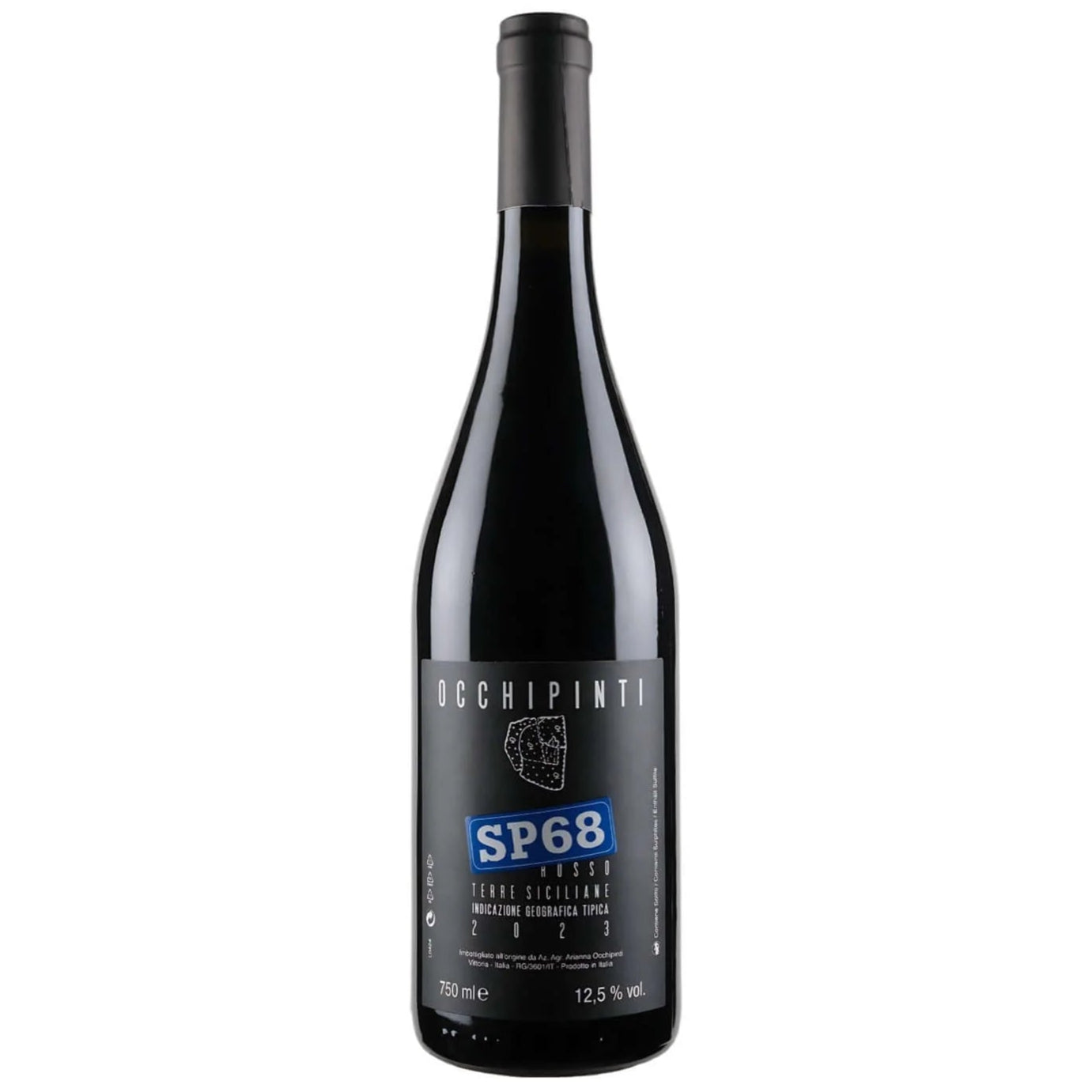Arianna Occhipinti
Arianna Occhipinti "SP68" Rosso
Arianna Occhipinti "SP68" Rosso
Couldn't load pickup availability
750ml
Overview
Arianna Occhipinti "SP68" Rosso is a captivating red wine that showcases the vibrancy of Sicilian terroir. Made from a blend of Frappato and Nero d'Avola grapes, this organic wine reflects the minimalist approach of the winery, with a focus on purity and expression. "SP68" Rosso is known for its fresh red fruit character, balanced structure, and elegant texture, offering a glimpse into the natural, unadulterated flavors of Sicily.
Vinification and Aging
- Fermentation: The wine is fermented spontaneously with native yeasts, preserving the true expression of the grapes and the terroir.
- Aging: After fermentation, it is aged in concrete tanks to allow the wine to develop a deeper texture while maintaining its freshness and vibrancy.
- Bottling: Bottled unfiltered and with minimal intervention, ensuring that the wine retains its natural character.
Tasting Notes
- Appearance: Bright ruby red, reflecting the wine’s youthful energy and freshness.
- Aroma: Fresh and inviting, with aromas of ripe strawberries, raspberries, and a hint of cherries, complemented by subtle floral notes and a touch of herbs.
- Palate: Light to medium-bodied, with crisp acidity and delicate tannins. Flavors of juicy red berries, a touch of spices, and herbal undertones fill the mouth, offering a harmonious balance between fruit and earthiness.
- Finish: Clean and refreshing, with lingering notes of red fruit and a subtle mineral finish.
Food Pairing
"SP68" Rosso pairs wonderfully with a variety of dishes, including pasta with tomato-based sauces, grilled meats, and charcuterie. It also complements vegetable dishes, roasted poultry, and fresh cheeses.
Serving Recommendations
- Serving Temperature: Best served at 14–16°C (57–61°F) to enhance its fresh and vibrant profile.
- Decanting: Not necessary, but it can be gently decanted to release its bouquet of aromas.
Aging Potential
While "SP68" Rosso is best enjoyed young to appreciate its fresh fruit and vibrancy, it has the potential to evolve for 3–5 years, developing greater complexity and integration of flavors with time.
Share


